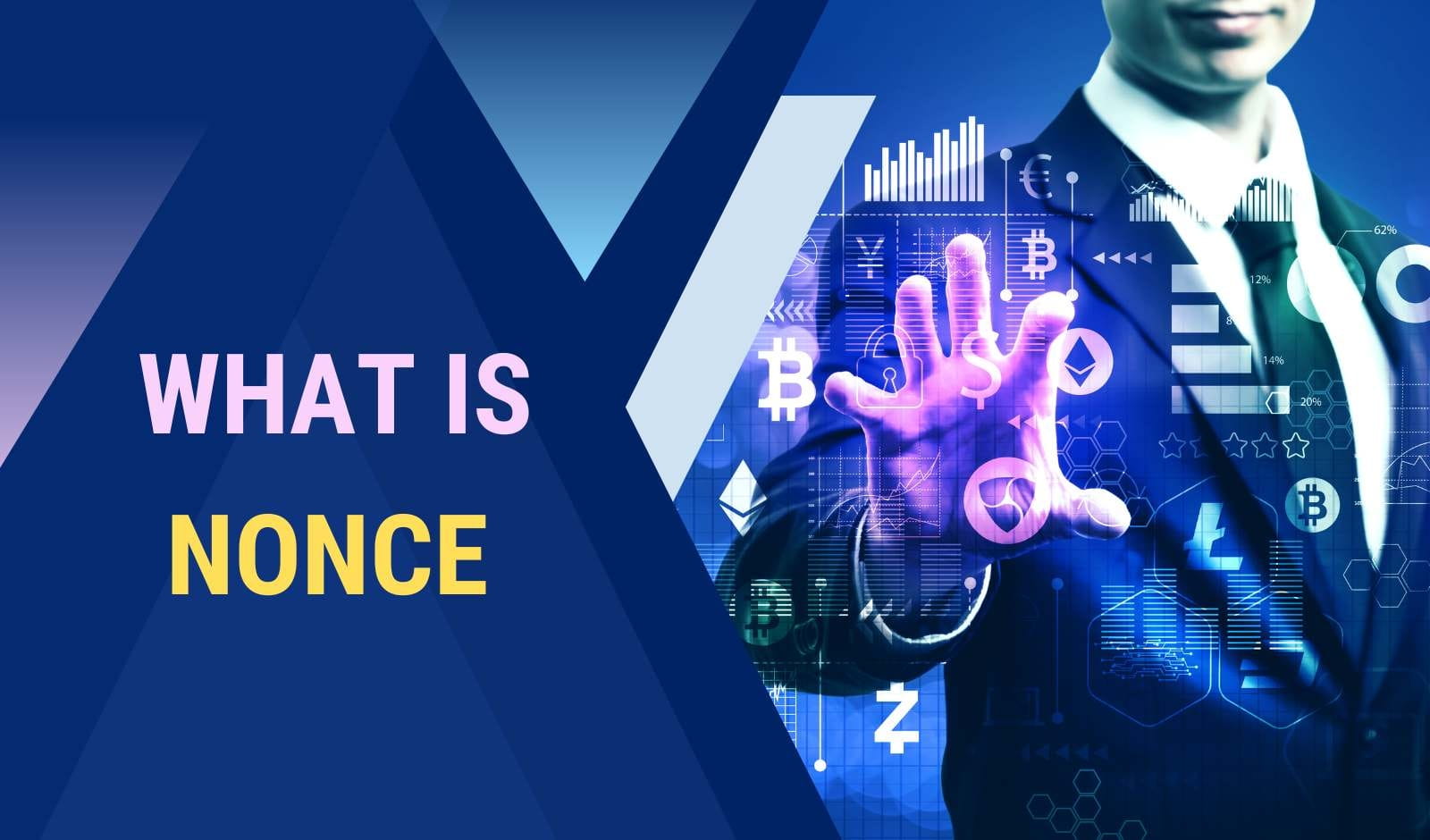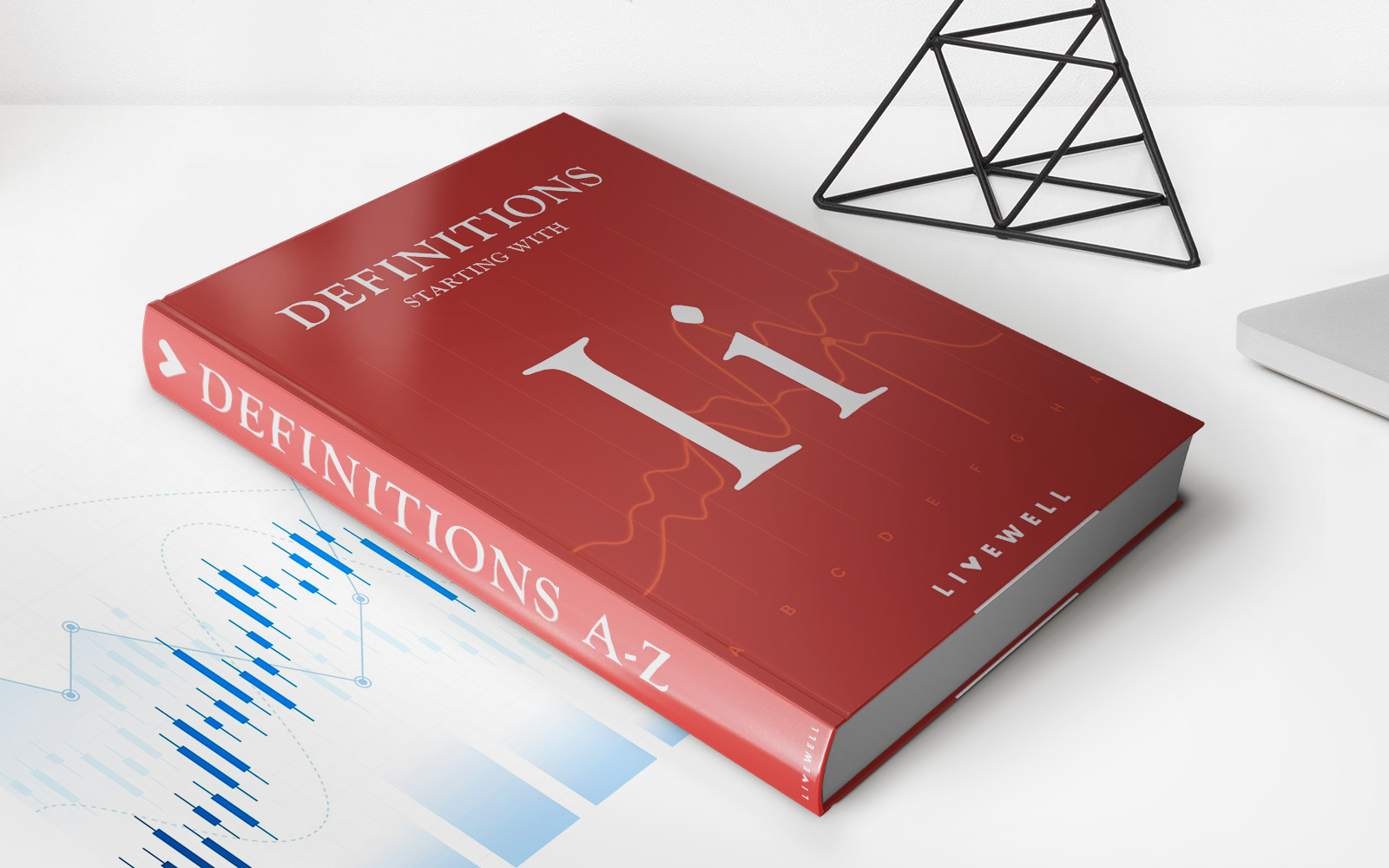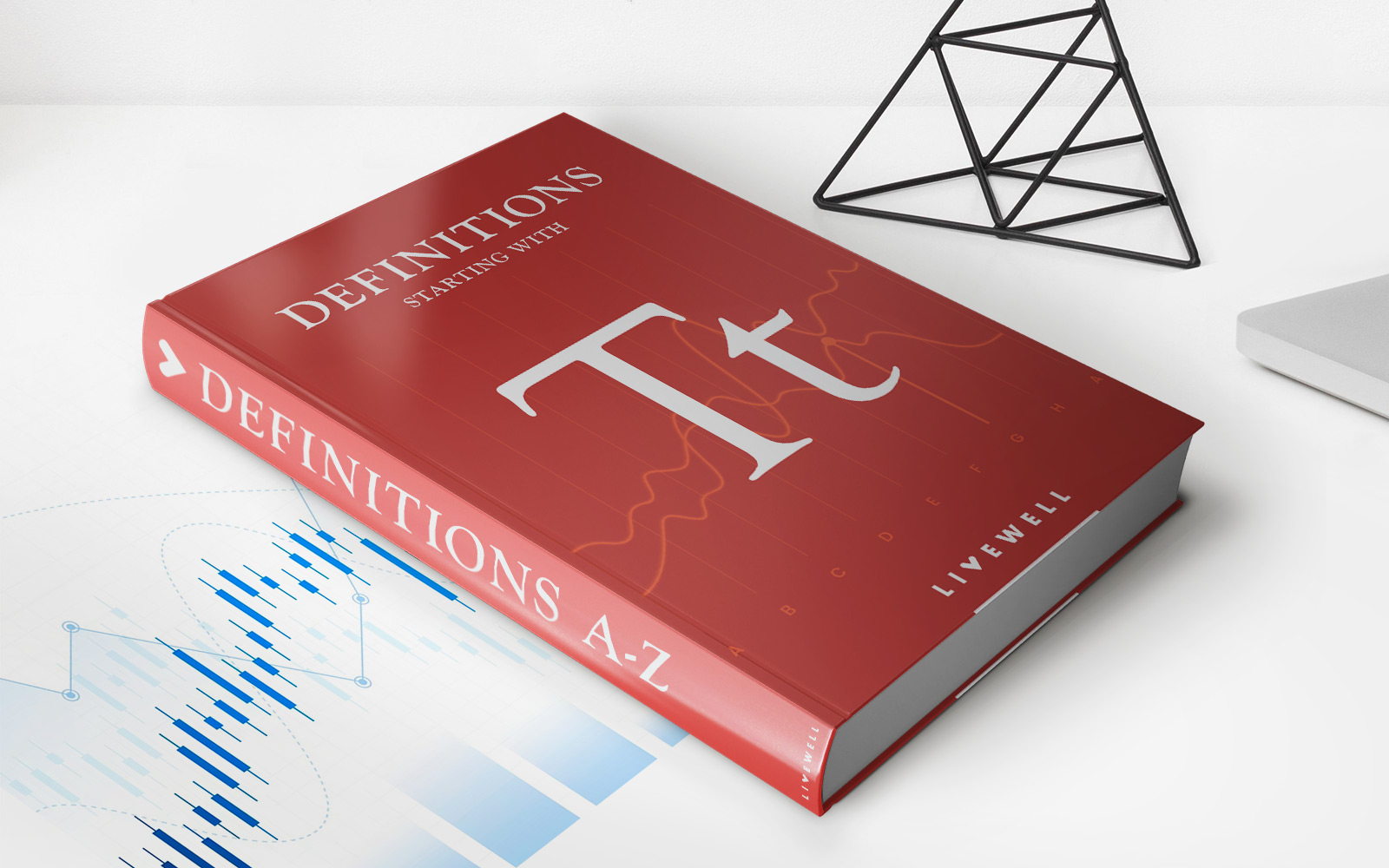

Finance
What Degree Should You Get For Blockchain
Published: October 23, 2023
Discover the perfect degree for a career in blockchain and finance. Explore the benefits of pursuing a degree in finance for the fast-growing field of blockchain technology.
(Many of the links in this article redirect to a specific reviewed product. Your purchase of these products through affiliate links helps to generate commission for LiveWell, at no extra cost. Learn more)
Table of Contents
- Introduction
- Importance of Choosing the Right Degree for Blockchain
- Factors to Consider When Choosing a Degree for Blockchain
- Computer Science and Engineering Degrees for Blockchain
- Mathematics and Statistics Degrees for Blockchain
- Business and Finance Degrees for Blockchain
- Cybersecurity and Information Technology Degrees for Blockchain
- Emerging and Specialized Degrees for Blockchain
- Conclusion
Introduction
Blockchain technology has emerged as a revolutionary force in the world of finance, enabling secure, transparent, and decentralized transactions. As the demand for blockchain professionals continues to rise, many individuals are considering pursuing a degree that will equip them with the necessary skills and knowledge to thrive in this rapidly evolving field. However, with so many options available, it can be challenging to determine which degree is the right fit.
In this article, we will explore the importance of choosing the right degree for blockchain and discuss the key factors to consider when making this decision. We will also examine some of the popular degree options that can provide a solid foundation for a career in blockchain.
Choosing the right degree for blockchain is crucial because it lays the foundation for your future career. It not only equips you with the necessary technical knowledge but also helps you develop critical thinking, problem-solving, and collaboration skills that are vital in the blockchain industry.
Furthermore, employers in the blockchain space often prioritize candidates with specific degrees or educational backgrounds. Having a relevant degree can give you a competitive edge and increase your chances of securing lucrative job opportunities in this dynamic field.
When deciding on a degree for blockchain, it is essential to consider your long-term career goals. Are you interested in developing blockchain applications and protocols? Do you want to explore the business and financial aspects of blockchain? Are you passionate about cybersecurity and want to specialize in blockchain security? Answering these questions will help you narrow down your choices and select a degree program that aligns with your interests and aspirations.
In the following sections, we will delve into different degree options that can help you build a strong foundation in blockchain technology. From traditional computer science and engineering degrees to emerging and specialized programs, we will explore the diverse educational pathways you can take to embark on a successful career in blockchain.
Importance of Choosing the Right Degree for Blockchain
Choosing the right degree for blockchain is crucial for several reasons. Firstly, it provides you with the necessary knowledge and skills to understand the intricacies of blockchain technology. Blockchain is a complex and rapidly evolving field, and having a solid educational foundation is essential to navigate its nuances effectively.
Secondly, choosing the right degree demonstrates your commitment and dedication to the blockchain industry. Employers value candidates who have taken the time to specialize in a particular field and have a deep understanding of its principles and applications. A relevant degree can differentiate you from other job seekers and increase your chances of securing desirable positions.
Moreover, a specialized degree in blockchain offers unique career opportunities. The demand for blockchain professionals is growing exponentially, and companies across industries are recognizing the potential of blockchain technology. By choosing the right degree, you position yourself to tap into this job market and explore diverse roles in blockchain development, consulting, project management, and more.
Additionally, blockchain degrees often provide opportunities for hands-on experience through internships, research projects, or collaboration with industry partners. These practical experiences not only enhance your skills but also help you build a network within the blockchain community, opening doors to further career advancement.
Furthermore, a well-chosen degree program can offer access to resources and mentorship from experts in the field. The connections you establish during your studies can be invaluable, providing guidance, support, and potential career opportunities down the line.
Lastly, choosing the right degree for blockchain allows you to gain a comprehensive understanding of related disciplines. Blockchain is not limited to computer science; it intersects with various fields such as finance, law, cybersecurity, and more. By pursuing a degree that integrates these different aspects, you develop a holistic perspective that can make you more versatile and adaptable in your future career.
In summary, choosing the right degree for blockchain is essential for your career growth and success in the industry. It provides you with the necessary knowledge, demonstrates your commitment, opens up unique opportunities, and helps you build a strong professional network. It is a decision that should be made with careful consideration of your interests, career goals, and the ever-evolving landscape of blockchain technology.
Factors to Consider When Choosing a Degree for Blockchain
When choosing a degree for blockchain, there are several factors to consider that can help guide your decision-making process:
1. Interest and Passion:
Consider your personal interest and passion for blockchain. Are you genuinely fascinated by the technology and its potential applications? Having a strong interest in the subject matter will not only make your studies more enjoyable but also drive your motivation to excel in the field.
2. Career Goals:
Think about your long-term career goals in the blockchain industry. Do you see yourself as a developer, consultant, researcher, or entrepreneur? Each career path may require a different set of skills and knowledge, so aligning your degree program with your desired career trajectory is crucial.
3. Technical Skills:
Consider the technical skills you want to acquire. Blockchain development requires expertise in programming languages such as Solidity, Python, or C++, as well as a deep understanding of data structures and cryptography. Ensure that the degree program you choose offers courses that cover these technical aspects.
4. Interdisciplinary Approach:
Evaluate whether you want to take a more interdisciplinary approach to your blockchain education. Blockchain intersects with various fields such as finance, law, cybersecurity, and supply chain management. If you are interested in exploring these intersections, consider a degree program that incorporates relevant courses or offers joint programs with other departments.
5. Reputation and Accreditation:
Research the reputation and accreditation of the educational institution offering the degree program. Look for universities or colleges known for their strong computer science, engineering, or business programs. Accreditation ensures that the program meets certain quality standards and is recognized by employers and other educational institutions.
6. Practical Experience:
Consider the opportunities for practical experience offered by the degree program. Internships, co-op placements, or research projects can provide hands-on experience and a chance to work on real-world blockchain projects. Look for degree programs that prioritize practical learning opportunities to enhance your skills and increase your employability.
7. Industry Connections:
Investigate the degree program’s industry connections and partnerships. Collaboration with leading companies, blockchain startups, or industry experts can provide valuable networking opportunities and potential job prospects upon graduation. These connections can help you stay updated with the latest trends and make meaningful connections within the blockchain community.
By considering these factors, you can make an informed decision when choosing a degree for blockchain. Keep in mind that there is no one-size-fits-all approach, and what works for someone else may not work for you. Take the time to assess your interests, goals, and aspirations to find a degree program that aligns with your unique needs.
Computer Science and Engineering Degrees for Blockchain
A computer science or engineering degree provides a strong foundation for a career in blockchain. These degrees offer comprehensive training in programming languages, algorithms, data structures, and software development, which are essential skills in the blockchain industry. Here are some key aspects to consider if you are interested in pursuing a computer science or engineering degree for blockchain:
1. Programming Languages:
Computer science and engineering degrees often offer coursework in programming languages such as Python, C++, Java, and Solidity. Proficiency in these languages enables you to develop smart contracts, build decentralized applications, and work with various blockchain platforms.
2. Data Structures and Algorithms:
A strong understanding of data structures and algorithms is crucial for designing and optimizing blockchain protocols. Courses in data structures, algorithms, and computational complexity provide the necessary knowledge to create efficient and secure blockchain systems.
3. Cryptography:
Blockchain heavily relies on cryptographic principles to ensure security and privacy. Computer science and engineering programs typically cover topics related to encryption, digital signatures, and secure multi-party computation, which are fundamental to understanding blockchain security.
4. Distributed Systems:
Blockchain is a distributed system that relies on the consensus mechanism to validate and record transactions. Courses in distributed systems explore concepts such as peer-to-peer networks, consensus algorithms, and fault tolerance, providing a solid understanding of how blockchain operates in a decentralized environment.
5. Database Management:
A strong background in database management is essential for working with blockchain, which relies on databases to store and retrieve information. Understanding concepts such as relational databases, NoSQL databases, and query languages enables you to effectively manage data in blockchain applications.
6. Blockchain-Specific Courses:
Some computer science and engineering programs offer specialized courses in blockchain technology. These courses delve into the intricacies of blockchain architecture, smart contract development, decentralized application (DApp) development, and blockchain security. Taking these courses can provide in-depth knowledge specific to the blockchain industry.
7. Capstone Projects:
Many computer science and engineering programs require students to complete capstone projects, allowing them to apply their skills to real-world challenges. This offers an opportunity to work on blockchain-related projects, such as developing a blockchain application or designing a novel consensus algorithm.
A computer science or engineering degree provides a strong technical foundation for a career in blockchain. However, it is important to stay updated with the latest developments in the field, as blockchain technology is constantly evolving. Consider joining blockchain communities, attending conferences, or pursuing certifications to enhance your blockchain expertise and remain competitive in the job market.
Mathematics and Statistics Degrees for Blockchain
A degree in mathematics or statistics can be a valuable asset for a career in blockchain. Mathematics and statistics provide the analytical and quantitative skills necessary to understand the underlying algorithms, protocols, and cryptography used in blockchain technology. Here are some key aspects to consider if you are interested in pursuing a mathematics or statistics degree for blockchain:
1. Cryptography and Encryption:
A strong mathematical foundation is essential for understanding the cryptographic techniques used in blockchain. Mathematics degrees often offer coursework in number theory, algebraic structures, and cryptography, providing the necessary knowledge to comprehend and analyze the security mechanisms employed in blockchain systems.
2. Probability and Statistics:
Statistics plays a crucial role in blockchain for analyzing data and making informed decisions. A background in probability theory, statistical inference, and data analysis equips you with the tools to understand blockchain metrics, analyze transaction patterns, and assess the reliability of consensus algorithms.
3. Discrete Mathematics:
Discrete mathematics is the study of mathematical structures that are fundamentally related to computer science and cryptography. Concepts such as graph theory, combinatorics, and discrete probability are vital in understanding the design and analysis of blockchain algorithms and protocols.
4. Game Theory:
Game theory provides insights into the strategic interactions among participants in a blockchain network. Courses in game theory teach concepts such as Nash equilibrium, cooperative and non-cooperative games, and mechanism design, which are applicable in analyzing blockchain consensus protocols and incentive mechanisms.
5. Mathematical Modeling:
Mathematical modeling is the process of creating mathematical representations of real-world phenomena. In the context of blockchain, mathematical models can be used to simulate and analyze the behavior and performance of blockchain systems, helping in the design and optimization of protocols.
6. Data Analysis and Visualization:
A degree in statistics equips you with the skills to analyze and interpret data, which is essential for understanding blockchain trends and patterns. Courses in data analysis and visualization enable you to extract insights from blockchain datasets and present them in a meaningful way.
7. Research Opportunities:
Pursuing a mathematics or statistics degree often involves research opportunities. Engaging in research projects related to blockchain allows you to contribute to the advancement of the field and gain hands-on experience in applying mathematical concepts to real-world blockchain challenges.
While a degree in mathematics or statistics provides a strong analytical foundation, it is also beneficial to supplement it with a basic understanding of computer science principles. Familiarizing yourself with programming languages, algorithms, and databases will enhance your ability to apply mathematical concepts in the blockchain domain.
Continuously expanding your knowledge in the field of blockchain through self-study, online courses, or attending workshops can further enhance your skills and keep you up to date with the latest advancements. This combination of mathematics, statistics, and blockchain expertise can be a powerful combination for a successful career in this exciting industry.
Business and Finance Degrees for Blockchain
A business or finance degree can provide a unique advantage for a career in the blockchain industry. As blockchain technology continues to disrupt traditional business models, organizations are seeking professionals who understand both the technical aspects of blockchain and the practical implications for various industries. Here are some key aspects to consider if you are interested in pursuing a business or finance degree for blockchain:
1. Blockchain Applications in Business:
A business or finance degree can help you understand how blockchain can be applied in different sectors. This includes exploring its potential in supply chain management, financial services, healthcare, and more. Understanding the business applications of blockchain will enable you to identify opportunities for innovation and develop strategies to leverage its potential.
2. Smart Contracts and Decentralized Finance (DeFi):
In recent years, smart contracts and decentralized finance have gained significant attention in the blockchain space. A business or finance degree can provide insights into the legal, regulatory, and financial implications of smart contracts and DeFi. It equips you to navigate the complexities of these innovative technologies and contribute to their adoption and integration into traditional financial systems.
3. Entrepreneurship and Blockchain Startups:
A business degree can be particularly valuable if you are interested in launching a blockchain startup or working in a startup environment. Courses in entrepreneurship, business planning, and venture capital provide you with the knowledge and skills to develop business models, secure funding, and navigate the unique challenges and opportunities of the blockchain startup ecosystem.
4. Risk Management and Compliance:
The blockchain industry faces various risks such as cybersecurity threats, regulatory challenges, and operational vulnerabilities. A finance or business degree can provide you with a strong understanding of risk management and compliance frameworks, enabling you to address these risks effectively and ensure the security and compliance of blockchain systems.
5. Business Strategy and Blockchain Adoption:
Blockchain adoption requires strategic planning and decision-making. Courses in business strategy and innovation can help you develop a strategic mindset to evaluate the potential benefits and challenges of blockchain implementation in different organizations and industries. You will learn how to analyze competitive landscapes, assess market demand, and create strategies for successful blockchain adoption.
6. Financial Analysis and Token Economics:
Token economics is a crucial aspect of blockchain projects and cryptocurrencies. A finance degree provides a strong foundation in financial analysis and valuation techniques, enabling you to understand the economic models behind blockchain tokens, conduct token evaluations, and assess investment opportunities in the blockchain space.
7. Industry Partnerships and Internships:
Many business and finance degree programs have partnerships with industry organizations or offer internship opportunities. These connections can provide you with exposure to real-world blockchain projects, networking opportunities, and potential job placements in the blockchain industry.
By combining business or finance knowledge with blockchain expertise, you position yourself to become a leader in this rapidly evolving industry. Stay updated with the latest developments, trends, and industry regulations through continuous learning, attending blockchain conferences, and actively engaging with blockchain communities and organizations.
Cybersecurity and Information Technology Degrees for Blockchain
A degree in cybersecurity or information technology (IT) can greatly benefit individuals aspiring to work in the blockchain industry. With concerns around data security, privacy, and the integrity of transactions, blockchain organizations are in constant need of professionals who can ensure the protection of their networks and systems. Here are some key aspects to consider if you are interested in pursuing a cybersecurity or IT degree for blockchain:
1. Network Security and Cryptography:
Cybersecurity and IT degrees focus on network security principles and techniques, including cryptography. These areas are crucial in blockchain, as maintaining the integrity and confidentiality of transactions and data is a primary concern. Understanding encryption algorithms, digital signatures, and secure communication protocols is essential for securing blockchain networks.
2. Blockchain Security:
Specific courses or concentrations in blockchain security offer specialized knowledge on securing blockchain systems. These programs explore vulnerabilities, attack vectors, and countermeasures specific to blockchain technology. By understanding the intricacies of blockchain security, you can ensure the protection of digital assets and prevent malicious activities.
3. Cyber Threat Intelligence:
Courses in cyber threat intelligence provide insight into identifying, analyzing, and responding to cybersecurity threats. This knowledge is invaluable in the blockchain industry, where the technology’s decentralized nature attracts various malicious actors. By understanding cyber threats and intelligence gathering techniques, you can proactively defend blockchain networks.
4. Secure Software Development:
A degree in cybersecurity or IT often includes coursework on secure software development practices. This knowledge is pertinent to blockchain as it involves developing smart contracts, decentralized applications (DApps), and other blockchain-related software. Understanding secure coding practices can mitigate vulnerabilities and ensure the overall security of blockchain systems.
5. Incident Response and Recovery:
Incident response and recovery courses equip students with the skills to identify and respond to security incidents effectively. This knowledge is crucial in the blockchain industry, where breaches can have significant consequences. Being able to promptly detect and respond to security incidents can limit the impact and prevent further damage.
6. Forensics and Blockchain Investigations:
Understanding digital forensics and blockchain investigations is valuable for individuals interested in preventing and investigating security breaches in blockchain systems. These courses cover techniques for analyzing blockchain transactions, tracing digital artifacts, and identifying potential security breaches or fraudulent activities.
7. Industry Certifications and Practical Experience:
In addition to a degree, obtaining industry certifications such as Certified Blockchain Security Professional (CBSP) or Certified Information Systems Security Professional (CISSP) can enhance your credibility in the field. Moreover, seeking practical experience through internships or participation in blockchain-related projects can provide hands-on experience in applying cybersecurity and IT knowledge in a real-world blockchain environment.
A degree in cybersecurity or IT combined with expertise in blockchain security positions you as a highly sought-after professional in the industry. Continually expanding your knowledge and staying updated with the latest cybersecurity trends and blockchain advancements will further enhance your skills and make you a valuable asset in this rapidly growing and evolving field.
Emerging and Specialized Degrees for Blockchain
As the blockchain industry continues to evolve, new and specialized degree programs are emerging to meet the growing demand for blockchain professionals. These programs offer unique perspectives and interdisciplinary approaches to understanding and harnessing the potential of blockchain technology. Here are some of the emerging and specialized degree options for those interested in pursuing a career in blockchain:
1. Blockchain Engineering:
Specialized programs in blockchain engineering focus on developing in-depth technical knowledge and skills specifically tailored to blockchain development. These programs delve into advanced topics such as distributed ledger technology, consensus mechanisms, smart contract development, and blockchain architecture. Graduates of blockchain engineering programs are equipped to design, develop, and optimize blockchain applications and infrastructure.
2. Blockchain for Supply Chain Management:
As blockchain technology offers significant benefits in supply chain management, specialized degrees in this area focus on understanding the potential applications and challenges of blockchain in optimizing supply chain processes. These programs explore topics such as traceability, transparency, smart contracts in supply chain logistics, and blockchain-enabled supply chain finance. Graduates of such programs can bridge the gap between technology and supply chain management, leveraging blockchain for efficiency, transparency, and trust in supply chain operations.
3. Blockchain and Digital Currency:
With the rise of cryptocurrencies and digital assets, specialized degrees in blockchain and digital currency focus on understanding the economic, financial, and regulatory aspects of blockchain technology. These programs explore topics such as token economics, initial coin offerings (ICOs), decentralized finance (DeFi), and cryptocurrency trading. Graduates of these programs can pursue careers in cryptocurrency investment, digital asset management, or work within regulatory and compliance frameworks in the blockchain industry.
4. Blockchain and Law:
As blockchain technology disrupts various industries, specialized degrees in blockchain and law aim to address the legal and regulatory challenges associated with blockchain adoption. These programs cover topics such as smart contract legality, data privacy, intellectual property, and blockchain regulatory frameworks. Graduates of these programs can provide legal expertise for blockchain projects, navigate legal complexities, and help organizations comply with relevant laws and regulations.
5. Blockchain and Sustainable Development:
Emerging degrees in blockchain and sustainable development explore how blockchain technology can contribute to environmental, social, and economic sustainability. These programs investigate the potential of blockchain in areas such as renewable energy trading, carbon credits, supply chain transparency, and impact investment. Graduates of these programs can work at the intersection of technology and sustainability, driving positive change through blockchain-enabled solutions.
6. Blockchain Entrepreneurship:
Specialized degrees in blockchain entrepreneurship focus on developing the skills and knowledge required to launch and manage blockchain-based startups. These programs cover topics such as business planning, investment strategies, blockchain business models, and venture capital. Graduates of blockchain entrepreneurship programs can pursue entrepreneurial ventures in the blockchain space, develop innovative solutions, and navigate the unique challenges of blockchain startups.
These emerging and specialized degrees provide niche expertise and prepare individuals for specific roles within the blockchain industry. They offer the opportunity to deep dive into particular aspects of blockchain technology and its applications, equipping graduates with specialized skill sets that are highly valued in the job market.
When considering pursuing an emerging or specialized degree, research the curriculum, faculty expertise, and industry partnerships of the program to ensure its quality and alignment with your career goals. Keep in mind that the blockchain industry is continuously evolving, and it is essential to stay updated with the latest trends and developments through continuous learning and participation in blockchain communities and events.
Conclusion
Choosing the right degree for a career in blockchain is a crucial decision that can shape your future in this fast-growing industry. Whether you opt for a computer science and engineering degree, mathematics and statistics degree, business and finance degree, cybersecurity and IT degree, or an emerging and specialized degree, each offers unique advantages and prepares you for various roles within the blockchain ecosystem.
It is important to consider your interests, career goals, and the skills and knowledge needed to thrive in the blockchain industry. Assess the curriculum, faculty expertise, and industry connections of the degree programs you are considering. Look for opportunities to gain practical experience and stay updated with the latest developments in blockchain technology. Networking within the blockchain community, participating in hackathons or industry events, and attaining industry certifications can further enhance your profile and increase your chances of success.
Remember that the blockchain industry is still evolving, and new opportunities and challenges are emerging. Continual learning and adaptability are key to staying relevant in this dynamic field. Embrace new technologies, explore interdisciplinary approaches, and be prepared to keep expanding your knowledge and skillset throughout your career.
In conclusion, choosing the right degree for blockchain is a crucial step in building a successful career in the industry. By selecting a degree program aligned with your interests and career goals, you lay a solid foundation for acquiring the necessary technical, analytical, and strategic skills to navigate the exciting world of blockchain. Embrace the opportunities that come your way, share your knowledge, and continue to be an active contributor to the growth and development of the blockchain ecosystem.














